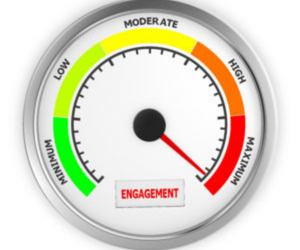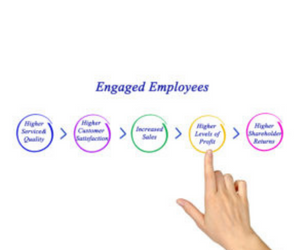Infertility: Advances In Treatment
Age and Infertility are Linked
Infertility affects roughly 12% of women. By the time a woman is in her early 40s, her chance of infertility rises to 20%. It’s a particularly difficult problem for the older woman because the quality of her eggs deteriorated as she aged. A woman in her 20s would typically have genetic abnormalities that would cause an egg to be unviable in 60% of her eggs. In her 40s, that same woman is likely to have 95% of her eggs be unviable. Realistically, the older a woman gets, the more problematic conception becomes.
IN VITRO FERTILIZATION (IVF) is not a Panacea
Your patients may have read stories about movie stars in their mid-50s giving birth to twins. Unfortunately, the popular press perpetuates the myth that you can be fertile forever. However, it’s not so. IVF is not quick, easy, or reliable. Further, it will typically cost in the $14,000 to $19,000 range for each attempt and insurance may not cover that. The success rates range from 5% to 60%, depending on the age and health status of the woman.
Freezing Eggs Can Be a Valuable Option
In the case of a woman who knows she will be delaying childbearing, there is a way of sidestepping the problem of her eggs becoming less viable as she ages. Normally her eggs will age much faster than her reproductive organs. If she chooses to freeze her eggs, she can stop the aging process for her eggs. Her reproductive organs will continue to change, but importantly, their rate of aging is slow enough that she’s highly likely to be able to carry a fetus to term in her 40s. The downside is the cost, typically in the $15,000 range, and she can’t be sure she’ll get a baby at the end. Her success is likely to be around 65%, but keep in mind that this means that 35% will not get a baby.
New Advances in IVF Increase The ODDS of Having a Healthy Baby
Women generally will have many good eggs and many infertile eggs. Recently we have made enormous strides in identifying which eggs have the chromosomal abnormalities that would result in miscarriages. By the time an embryo is five days old, we’ve found that it’s safe and reliable to take one of the 40 to 80 cells that are present and test that cell for chromosomal abnormalities. The way we can do this is, we take the individual cell that we harvested and cause it to produce enough copies of itself so that we can test for all the known chromosomal abnormalities. With this process, we can find the embryos that are destined to make a healthy baby, as opposed to ones that would result in failure to implant or an early miscarriage.
Miscarriages are Remarkably Common
About 15% of women miscarry. The good news for a woman who has miscarried once or even twice, is that she’s no more likely than someone in the general population to miscarry again. It’s nature’s way of making up for its errors, which, by the way, are frequently chromosomal errors. The odds of a serious underlying problem don’t really increase until there’s a third miscarriage. However, when a woman goes through a miscarriage, even for an unplanned pregnancy, it is a devastating experience, and both the woman and her loved ones need to recognize that asking her to be “strong” is probably not the best approach. Expressing her grief and disappointment can speed the process of getting over it.
Search Blogs
Latest Posts
Ukraine’s Fate and the U.S. Election: A Perspective from the Front Lines
https://foreignpress.org/journalism-resources/ukraines-fate-and-the-us-election-a-perspective-from-the-front-lines Publication –foreignpress.org
New Life for Old Ambulances
https://foreignpress.org/journalism-resources/new-life-for-old-ambulances Publication –foreignpress.org
Prince Mario-Max Schaumburg-Lippe: Orphans International and James Jay Dudley Luce Foundation Celebrate 25 Years of Global Leadership
https://t2conline.com/prince-mario-max-schaumburg-lippe-orphans-international-and-james-jay-dudley-luce-foundation-celebrate-25-years-of-global-leadership Publication –t2conline.com
Mitzi Perdue: I Am An Assassination Attempt Survivor
Mitzi Perdue: I Am An Assassination Attempt Survivor About The PodcastThe newsmaker interviews and the news you need when time is short!
Subscribe to Updates
About Author

Mitzi Perdue is the widow of the poultry magnate, Frank Perdue. She’s the author of How To Make Your Family Business Last and 52 Tips to Combat Human Trafficking. Contact her at www.MitziPerdue.com
All Articles
Be the Person Others Want to Do Business With: Be fair
Be the Person Others Want to Do Business With: Be fairThe Beginnings of the Sheraton Hotel The international Sheraton Hotel Chain grew from an investment of just $1000. My father, his brother, and his college roommate received war bonuses after their military service...
Heart Disease In Women: It’s Different
Heart Disease In Women: It’s DifferentHEART DISEASE IS A WOMAN’S DISEASE In the 1950s, we all thought heart disease was a man’s disease. However, more women are dying of heart disease than men. Also, even though the mortality rates for both men and women are...
Prevent Nightmare House of Horrors: Family Business Quarrel, Part 2
Prevent Nightmare House of Horrors: Family Business Quarrel, Part 2 To prevent a Family Business Quarrel 1. Create a culture emphasizing that family members are part of something bigger than themselves. Being too self-centered is a danger in a family business....
Preventing Nightmare House of Horrors, a Family Quarrel, Part 1
Preventing Nightmare House of Horrors, a Family Quarrel, Part 1Since you’re here reading this, the subject probably hits close to home. If so, you have my entire sympathy. If ever there’s a high stakes situation, it’s the family quarrel in a family business. I’ve had...
Four Things Frank Perdue Did to Encourage Employee Engagement
Four Things Frank Perdue Did to Encourage Employee Engagement Employee engagement is one of the most important – possibly the most important factor in an organization’s success. When I look at how Frank Perdue (my late husband) built his chicken company from a...
Employee Engagement – Gallup Really Knows!
Employee Engagement - Gallup Really Knows!Visit Gallup, the People Who Really Know There are 1.3 billion full-time employees in the world. Give a guess: how many feel enthusiastic about and committed to their work? 1) 13% 2) 30% 3) 82% 4) How the heck could anybody...




